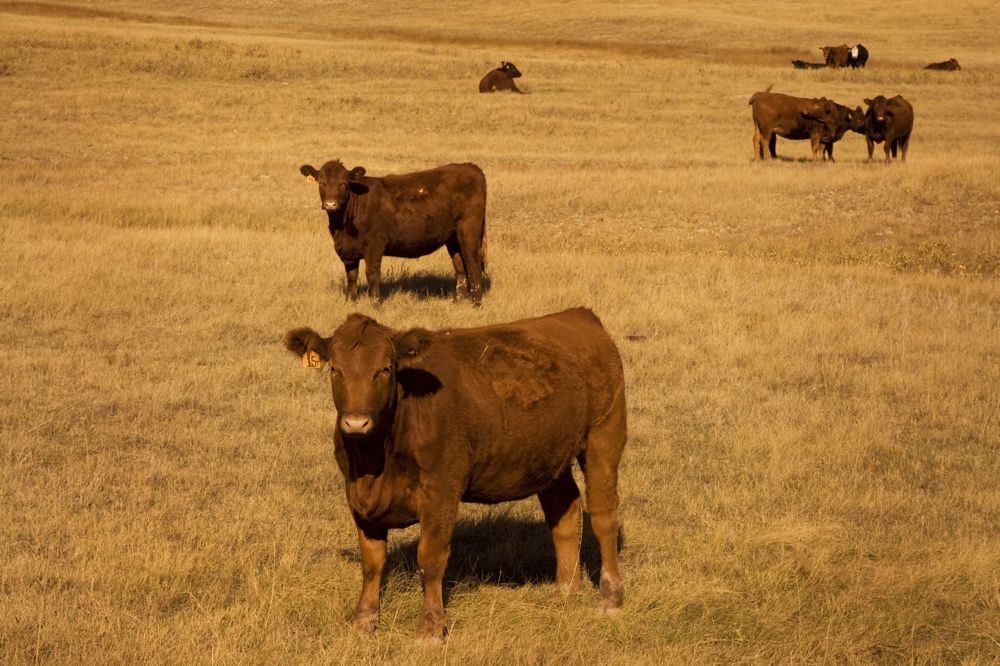Saskatchewan to adjust WLPIP premiums for producers
Province also opts in to fund AgriRecovery set-aside plan
By Dave Bedard
| 3 min read

(File photo courtesy Canada Beef Inc.)
The Saskatchewan government plans to temporarily subsidize livestock producers entering the Western Livestock Price Insurance Program (WLPIP) against its recent jump in program premium costs.
The province on Thursday announced it will provide $5 million to “partially offset” WLPIP premiums, which it noted have risen “significantly” since the end of February this year on COVID-19-induced market uncertainty and volatility.
The province said it will cover 40 per cent of increased WLPIP premium costs dating back to Feb. 25. The premium adjustments will be in place until Sept. 1, 2020, “at which time the provincial government will review and reassess.”
The province also announced it would extend the 2020 deadline to buy WLPIP calf price insurance to June 18, from the previous deadline of May 28.
Saskatchewan Stock Growers Association president Bill Huber, in the province’s release, described WLPIP as “a valuable tool to help producers manage risk, particularly as we navigate market volatility due to COVID-19,” but the province’s announcements “will help make premiums more affordable and allow additional time to enroll in the program.”
An expansion of an Alberta program set up in 2009, WLPIP launched across the four western provinces in 2014 to help producers manage price, currency and basis risk against market volatility. A producer pays premiums for forward price coverage, and if the market price drops below the coverage price in the chosen time frame selected, the producer gets a payment.
However, COVID-19-related pressures have pushed WLPIP premiums to the point where coverage that previously cost $15-$20 per head ran about $70 in mid-April, the Canadian Cattlemen’s Association said at the time.
Premium prices earlier this month were noted to have slipped into a still-high but relatively “more reasonable” range.
The Saskatchewan government said Thursday it “continues to encourage the federal government to support the sector by contributing the remaining 60 per cent of the increase in premium costs.”
Set-aside funding
The Saskatchewan government on Thursday also announced a separate $5 million contribution covering its 40 per cent share of the federal government’s previously announced AgriRecovery plan for new livestock set-asides.
Under the set-aside program — which in Saskatchewan will be delivered by Saskatchewan Crop Insurance Corp. — this means the province’s eligible livestock producers will be able to access up to $12.5 million in total.
“Participation in the AgriRecovery set-aside program will compensate producers for the cost of temporarily holding cattle back from market until supply more evenly matches demand and processing capacity,” provincial Agriculture Minister David Marit said in Thursday’s release.
From Saskatchewan, about 3,500 fed cattle per week would typically be shipped to packing plants in Alberta at this time of year, the province said Thursday. In recent weeks, though, that number has dropped to fewer than 400.
“It is already costing the cattle industry $400,000 per day to feed cattle that normally would have been processed by now, and that number is growing every day as more animals go unprocessed,” SSGA’s Huber said in a separate release.
SSGA members, he said, “are concerned because negative margins in the feeding sector and a backlog of cattle will wreak havoc with calf prices in the fall.”
The province said Thursday it will work with industry, the federal government and “other western provinces” on details for the set-aside plan.
Saskatchewan Cattlemen’s Association chair Arnold Balicki on Thursday also hailed the province’s announcements, which together he said “will help with the backlog and make it more affordable for producers to participate in price insurance, injecting some certainty into the coming months.” — Glacier FarmMedia Network


